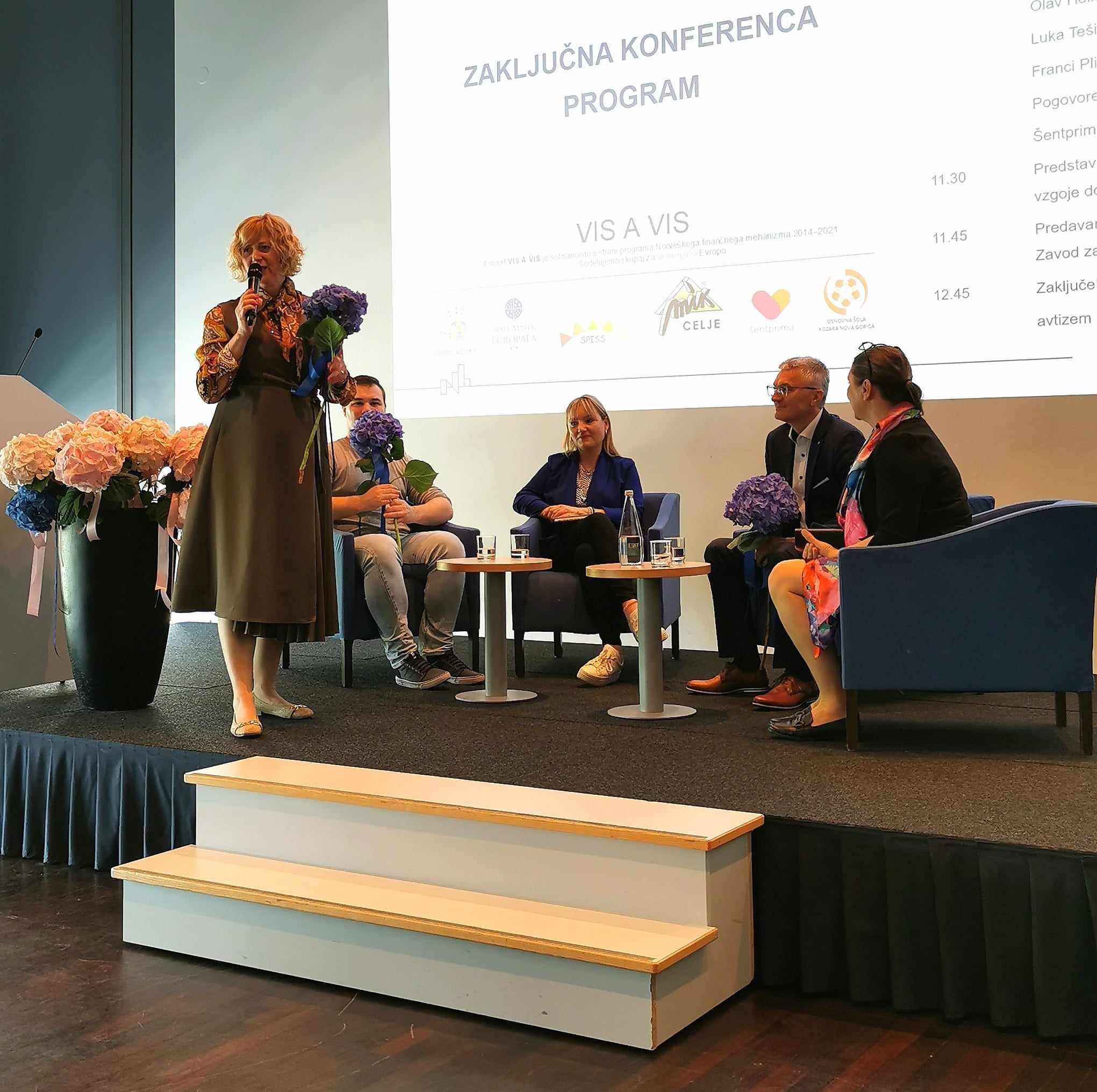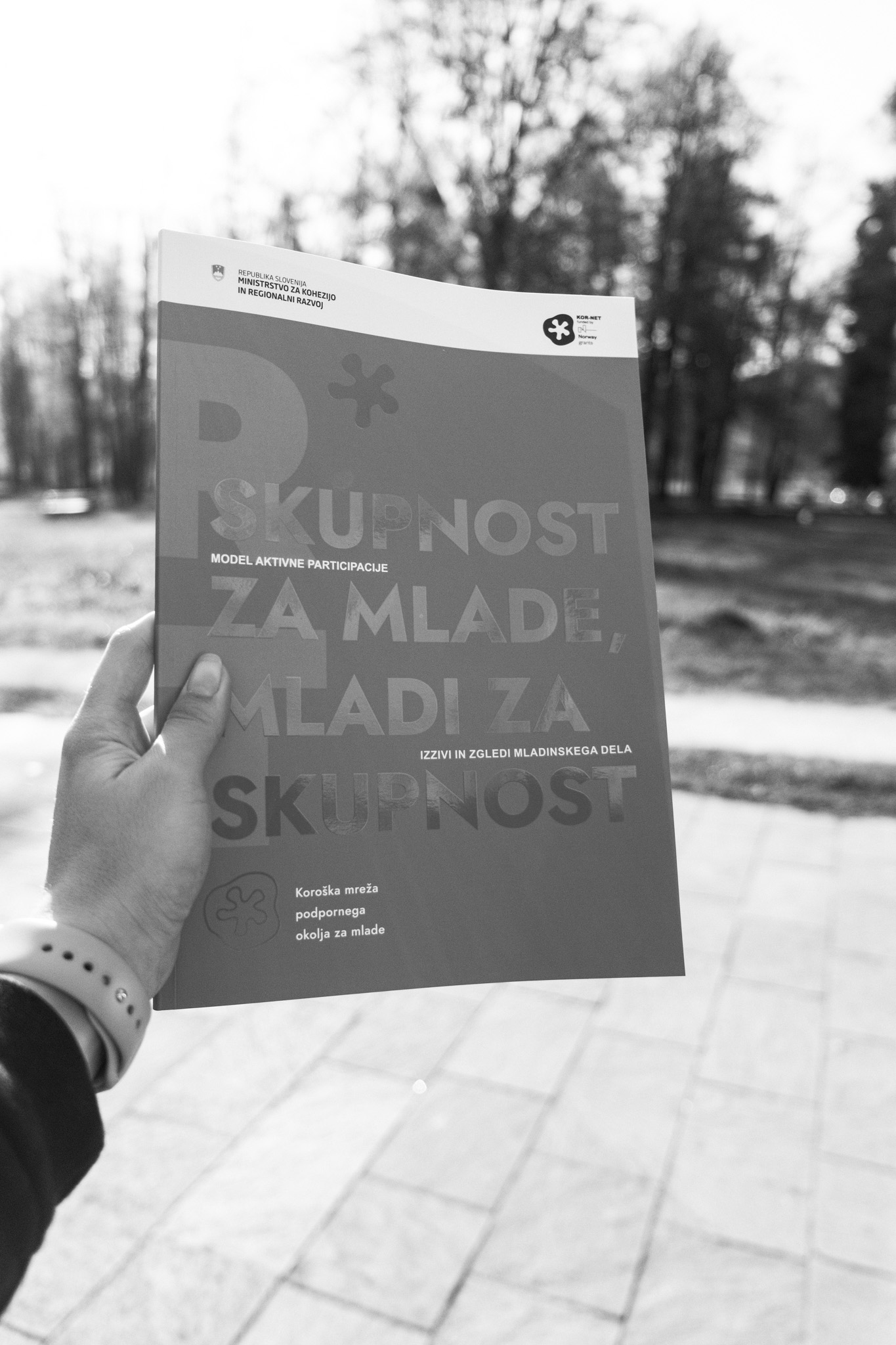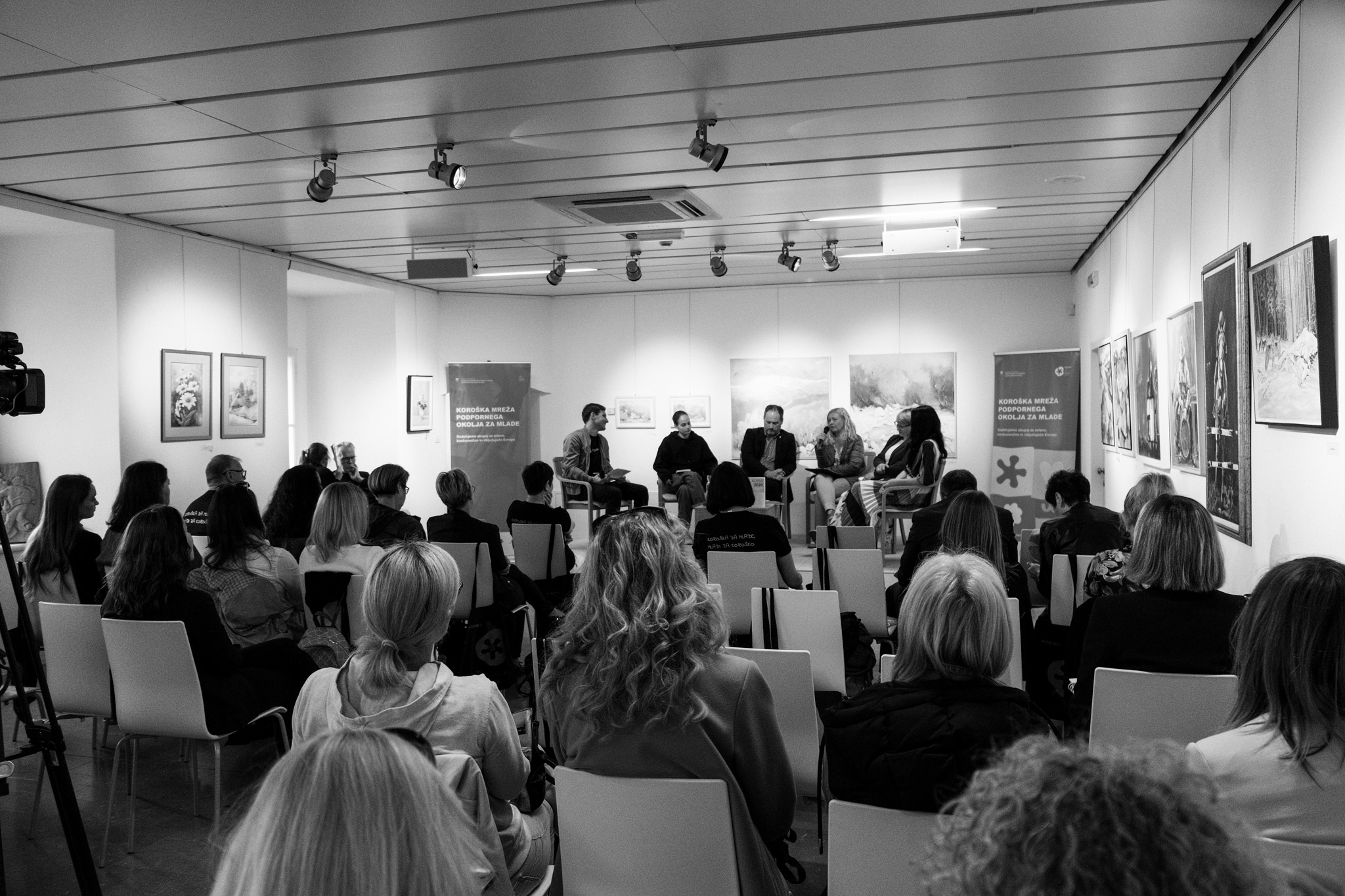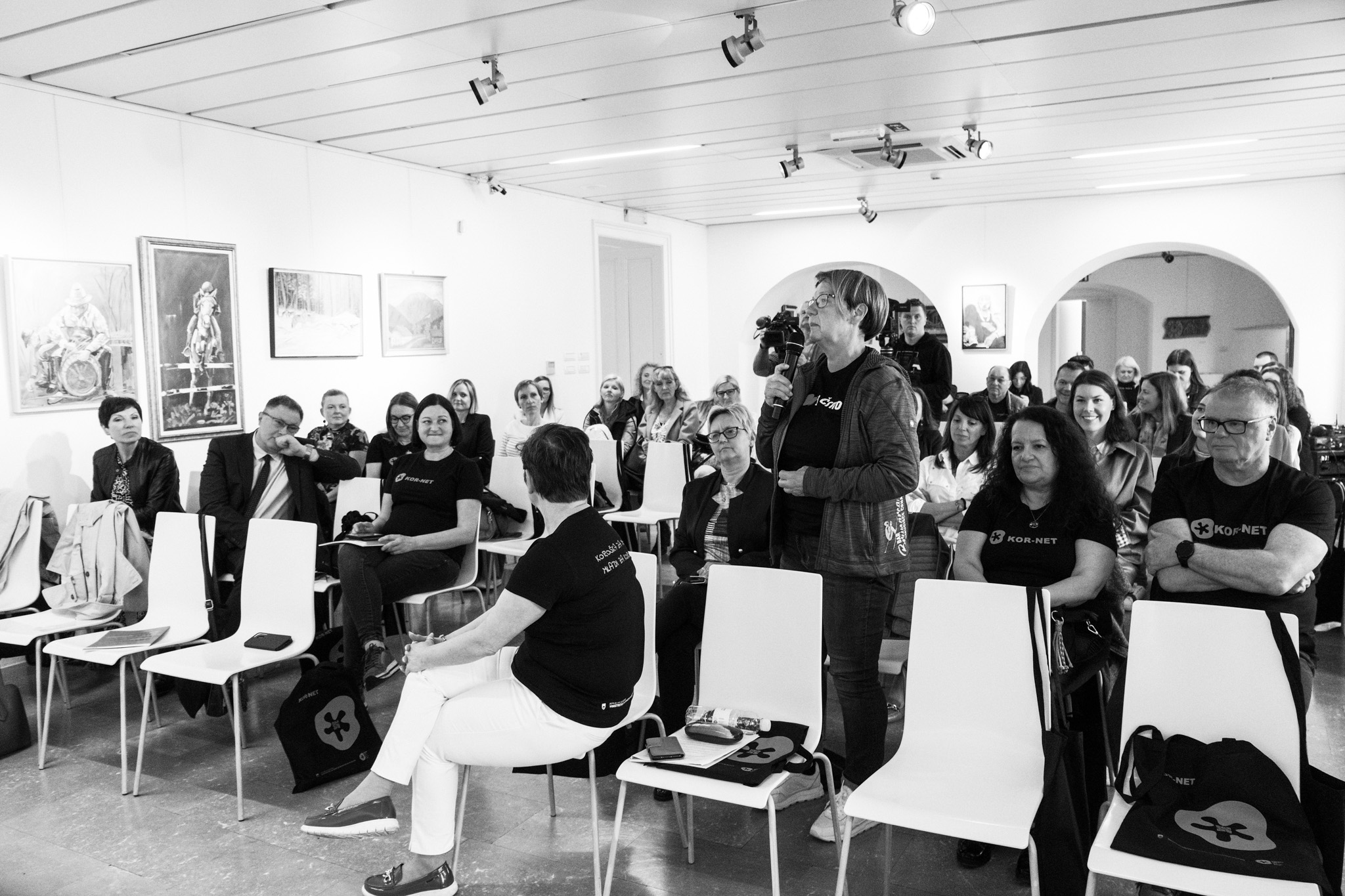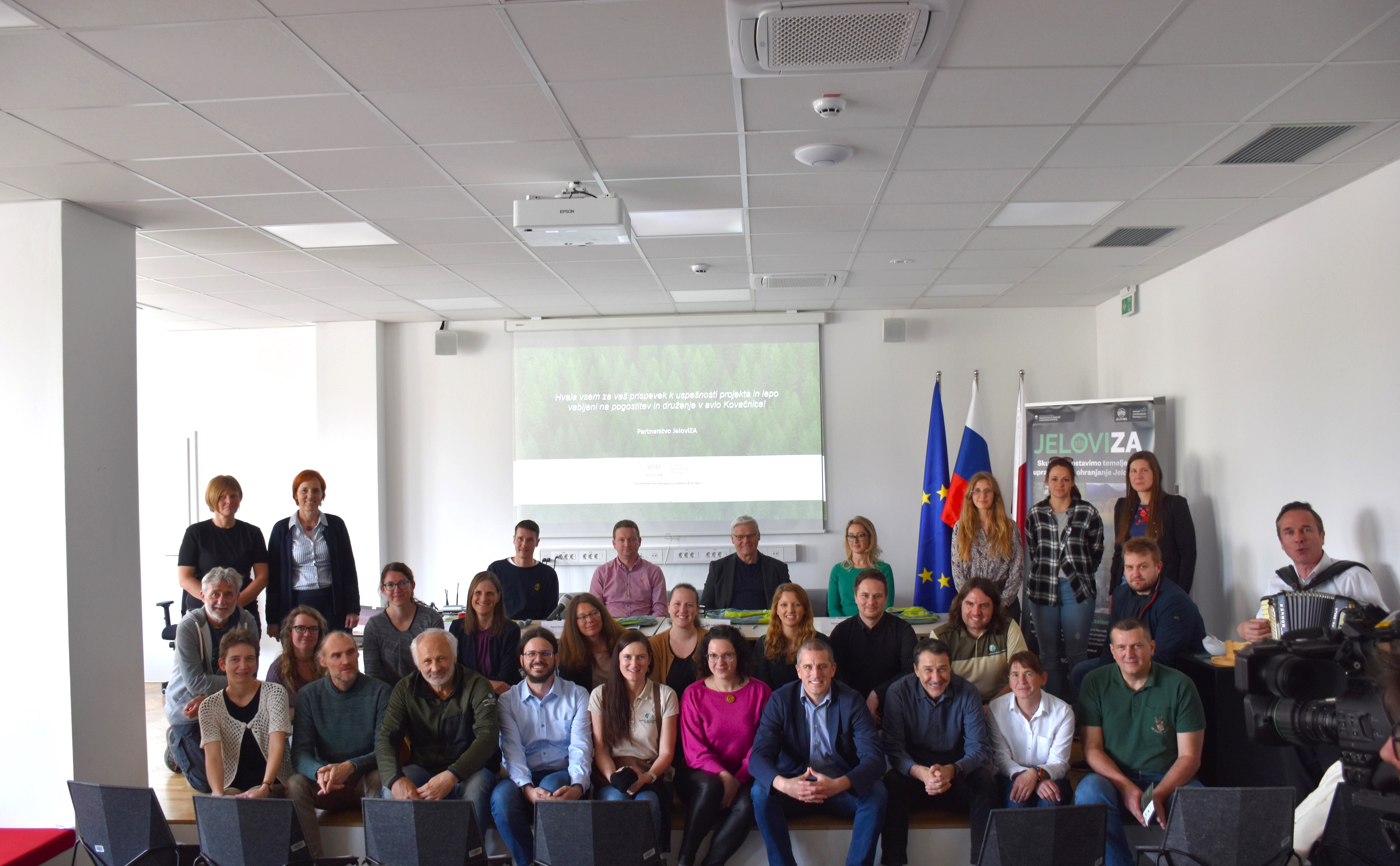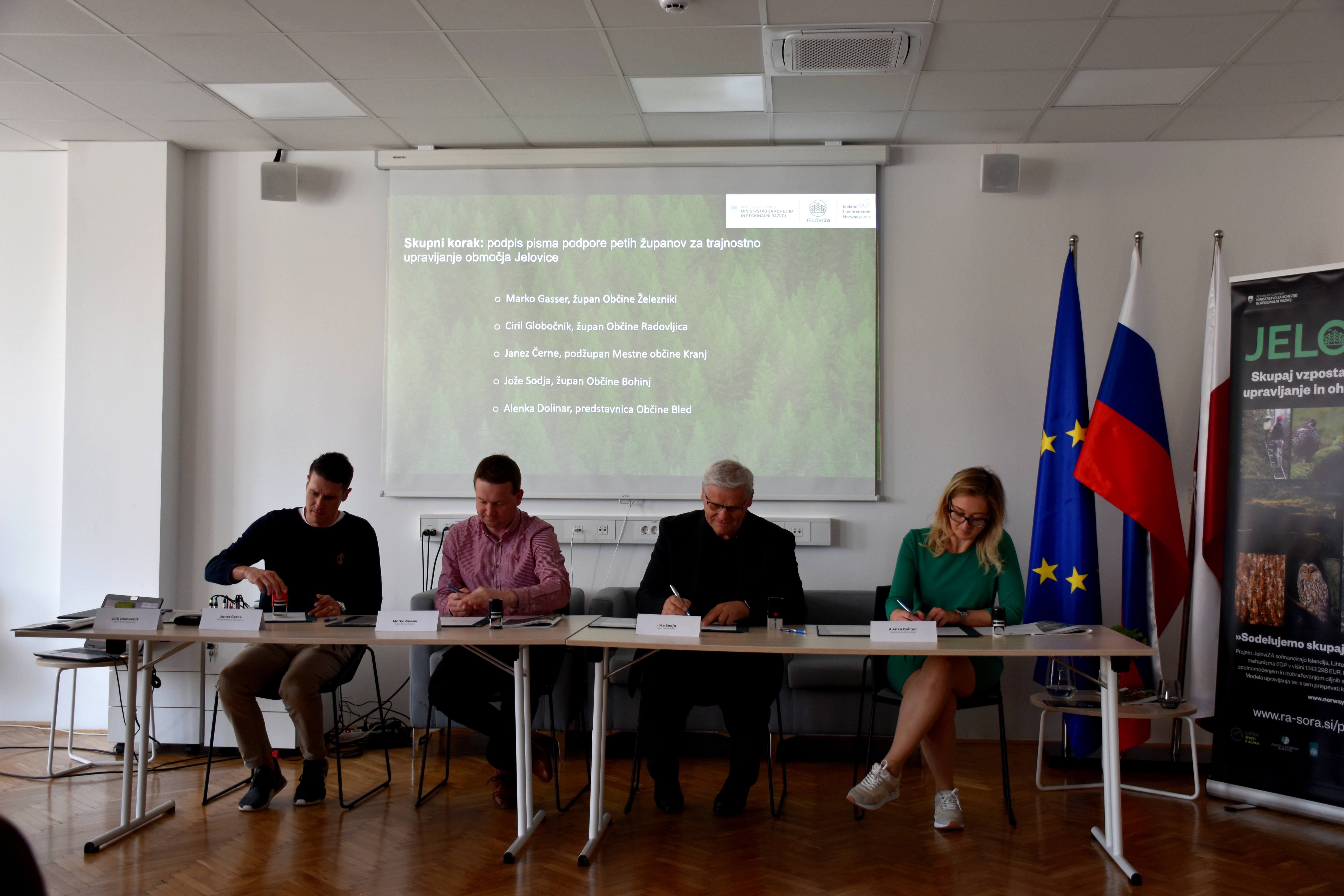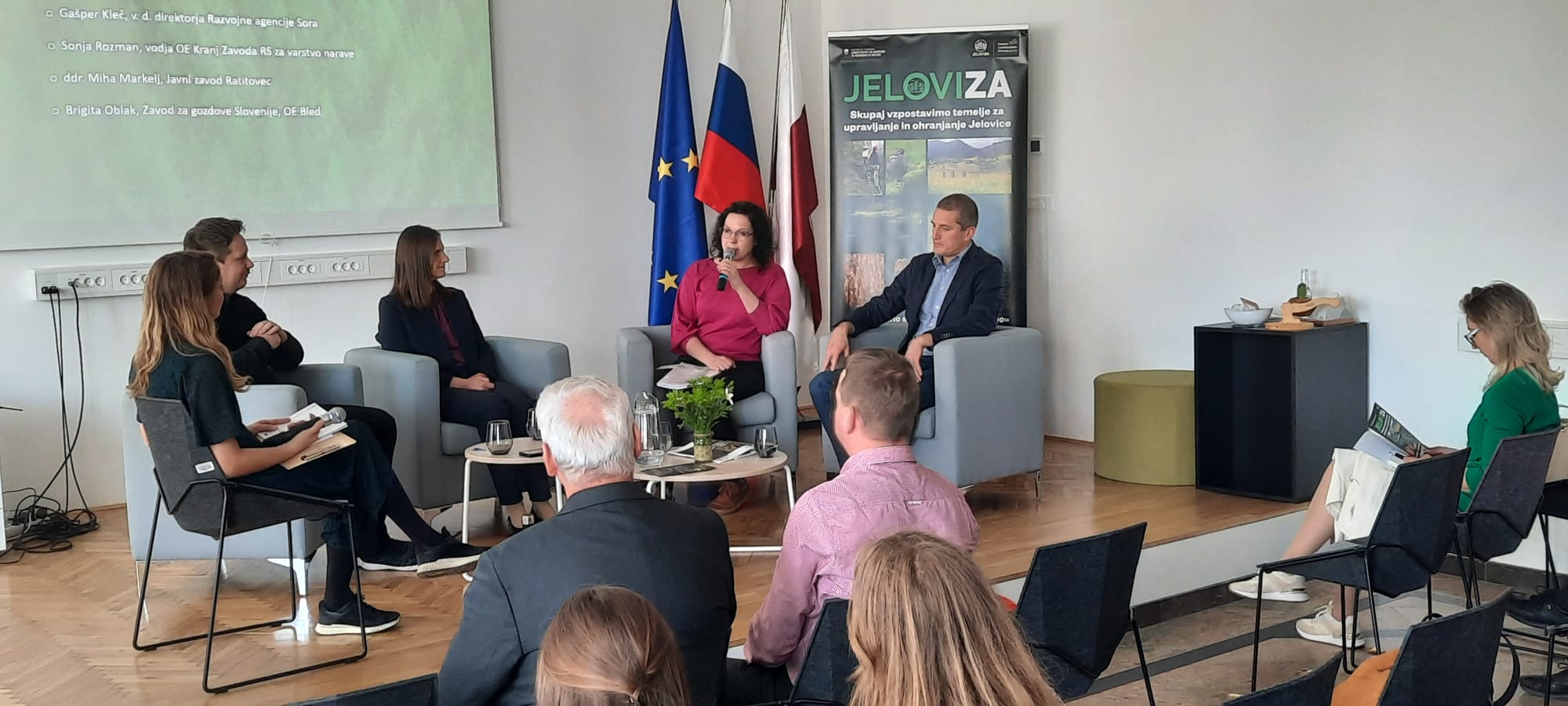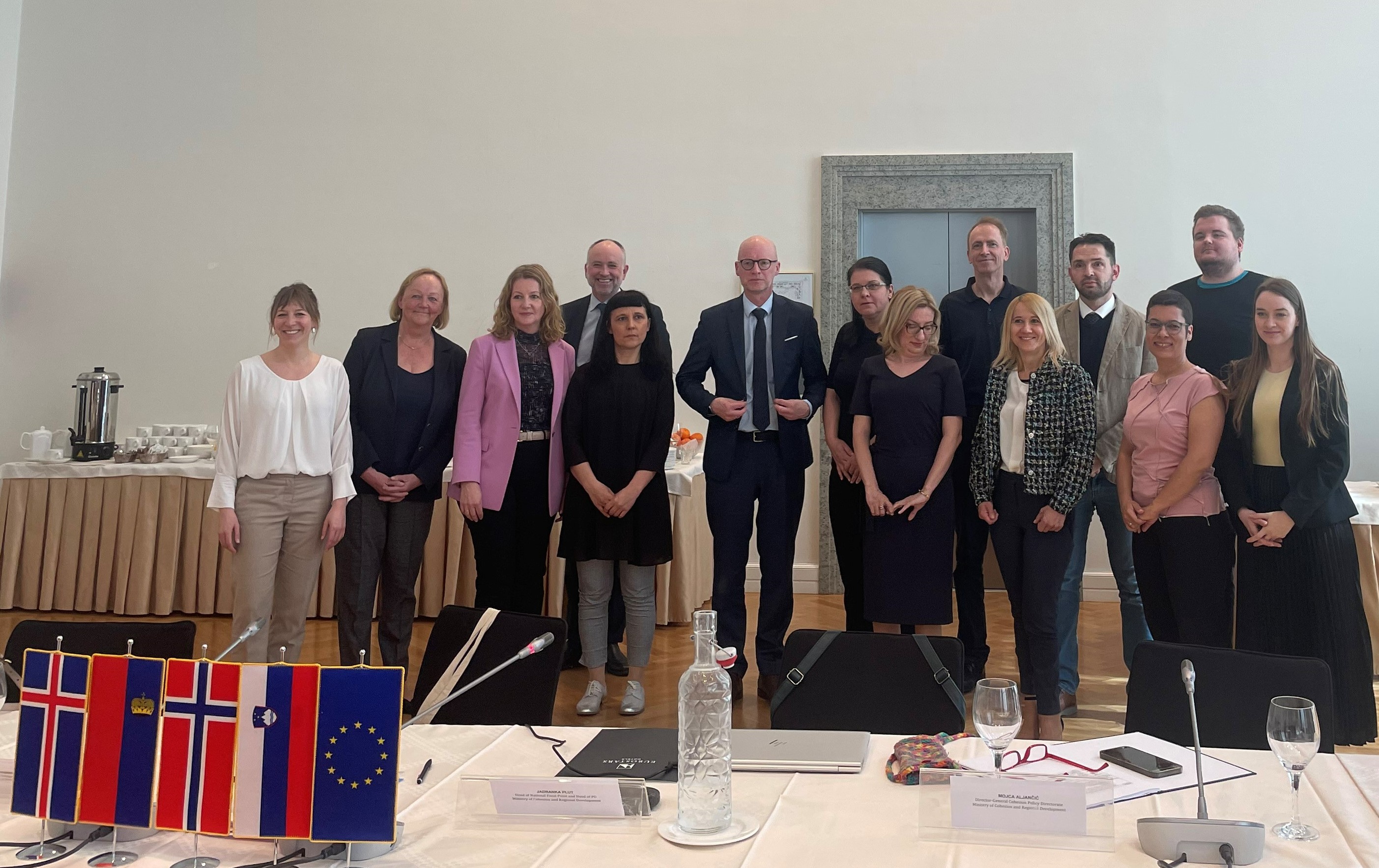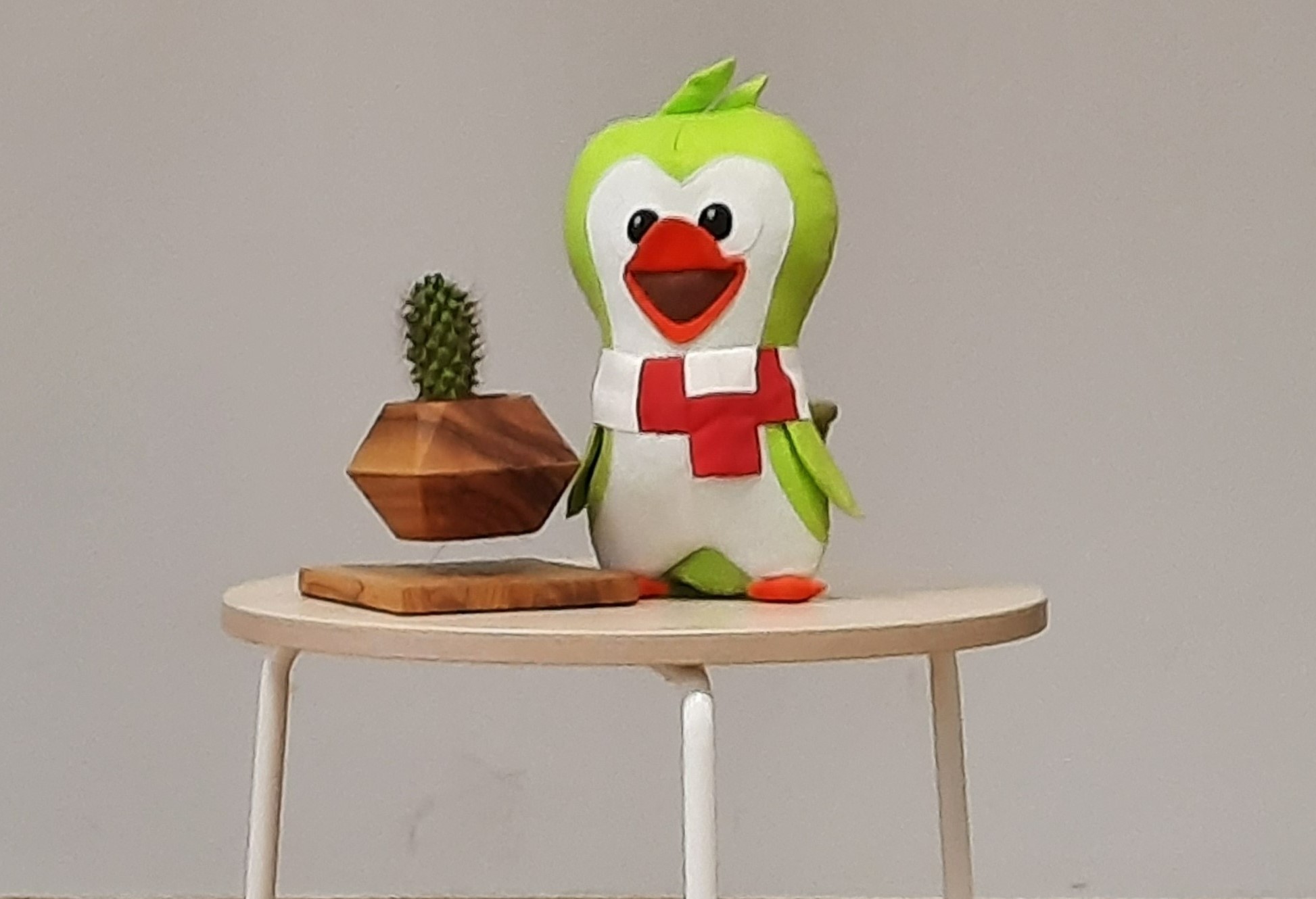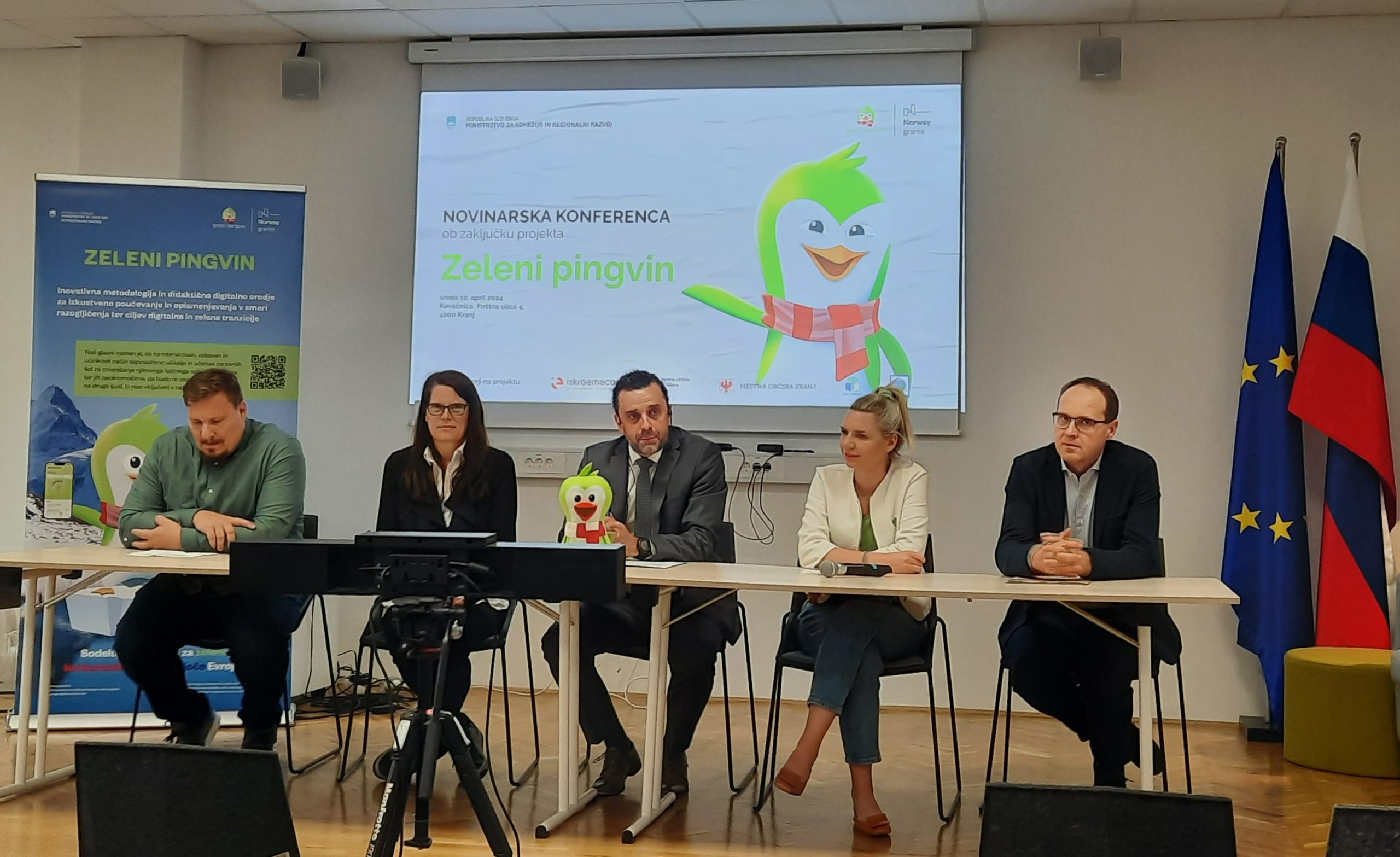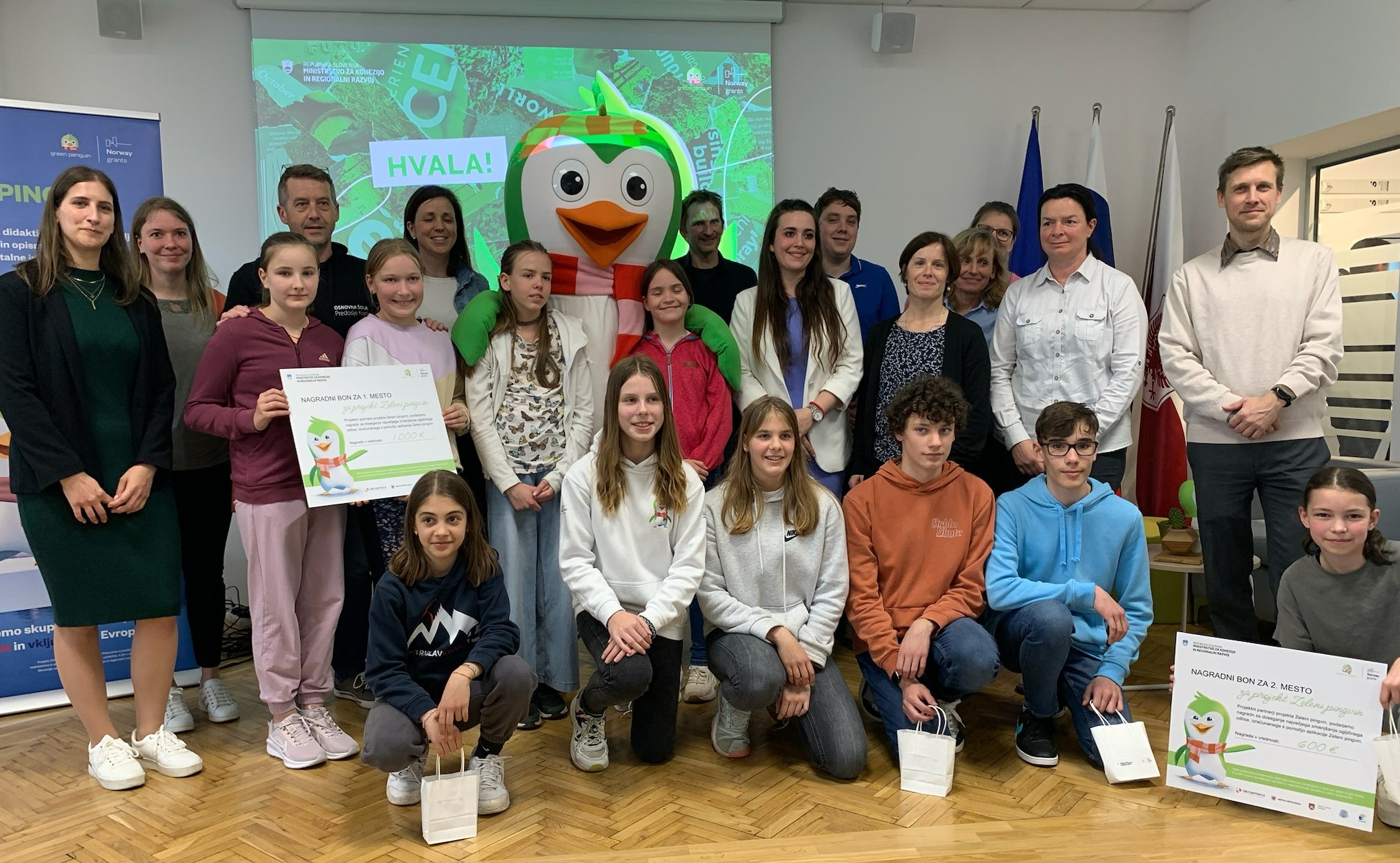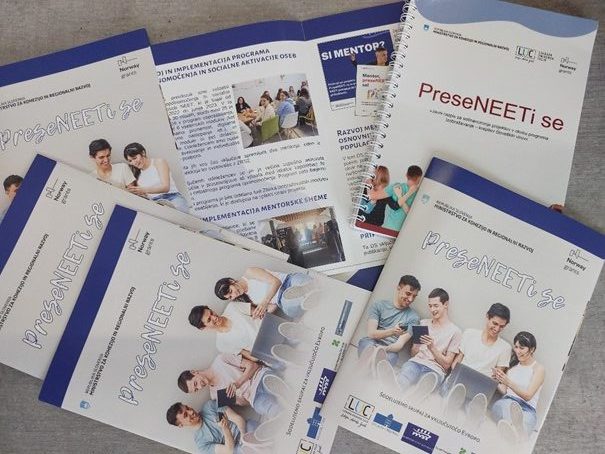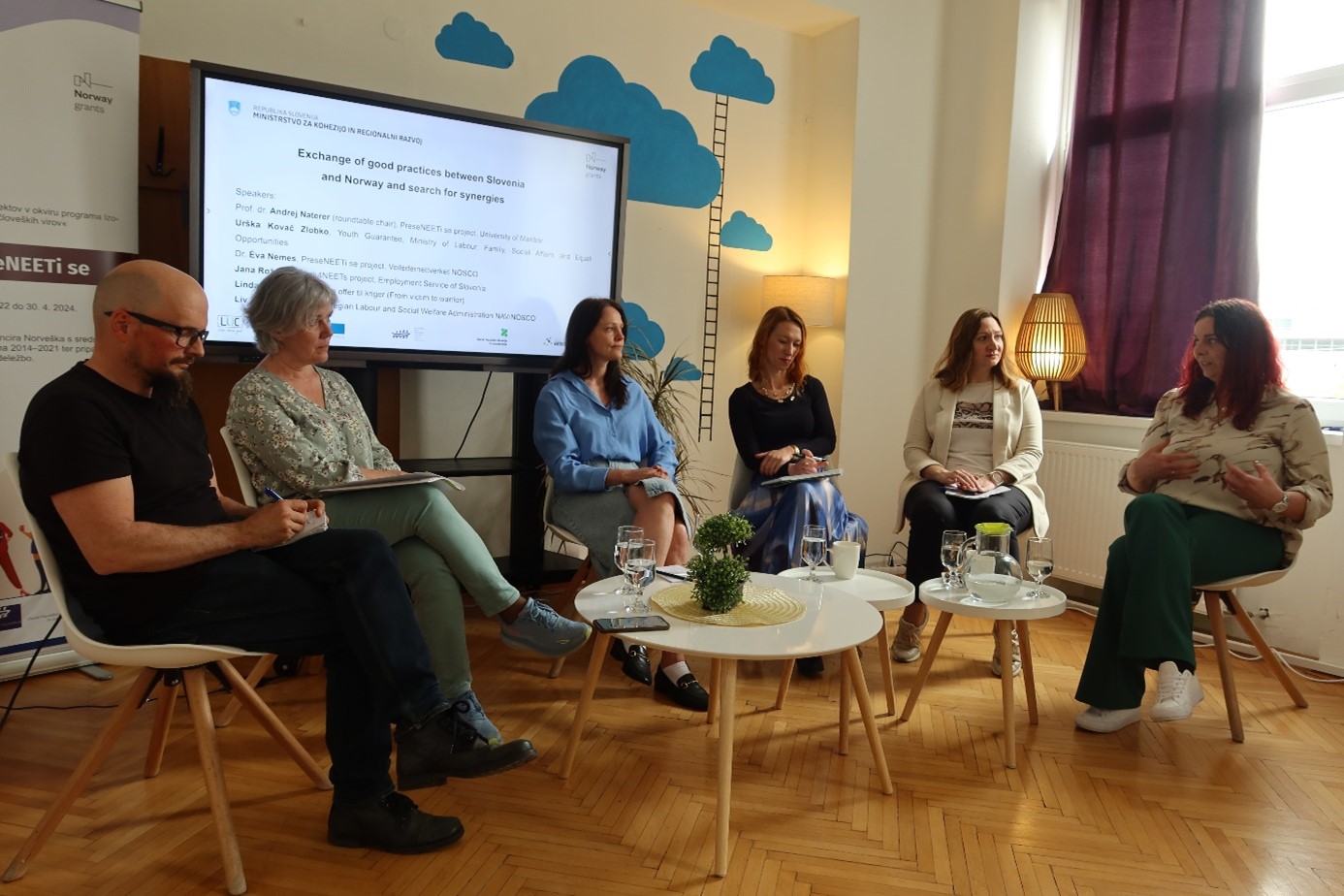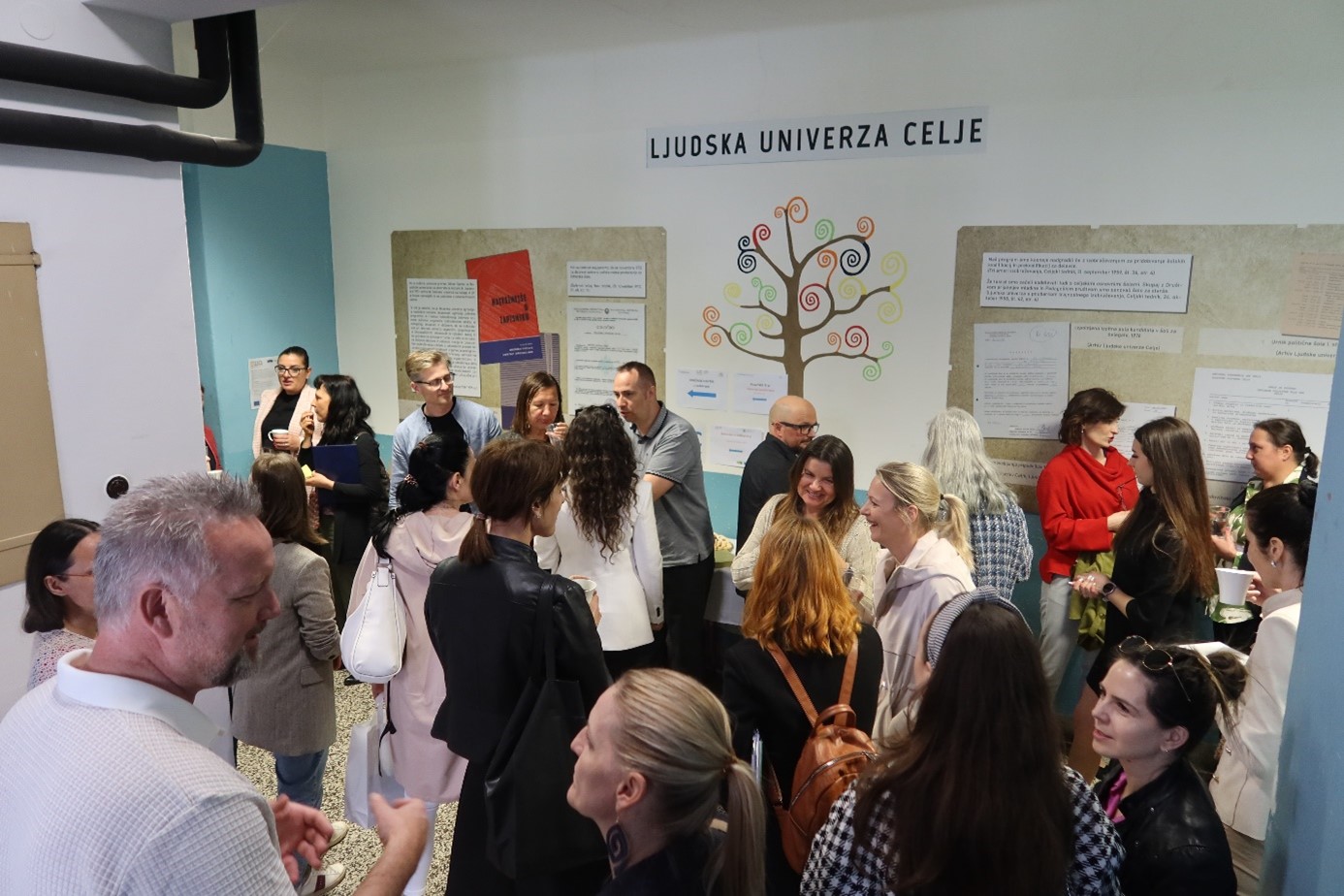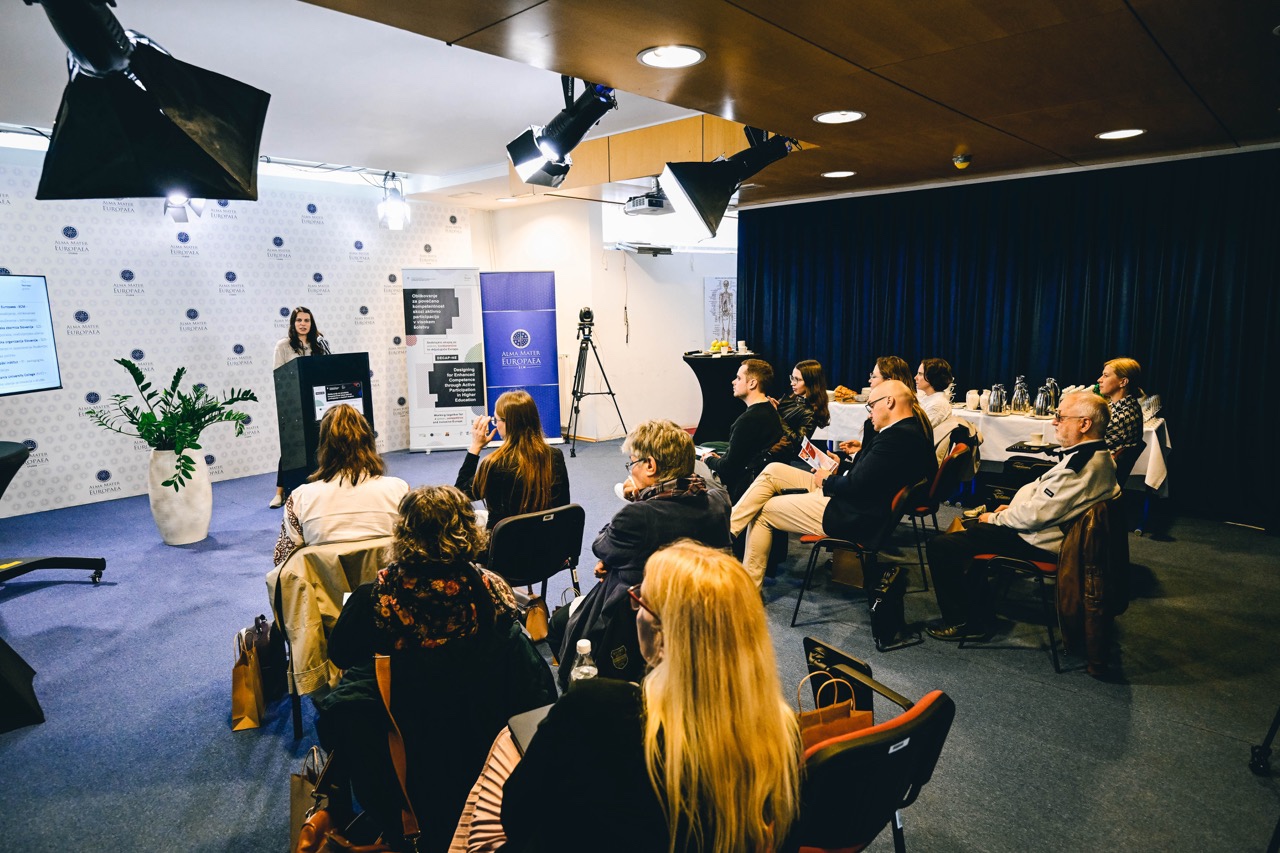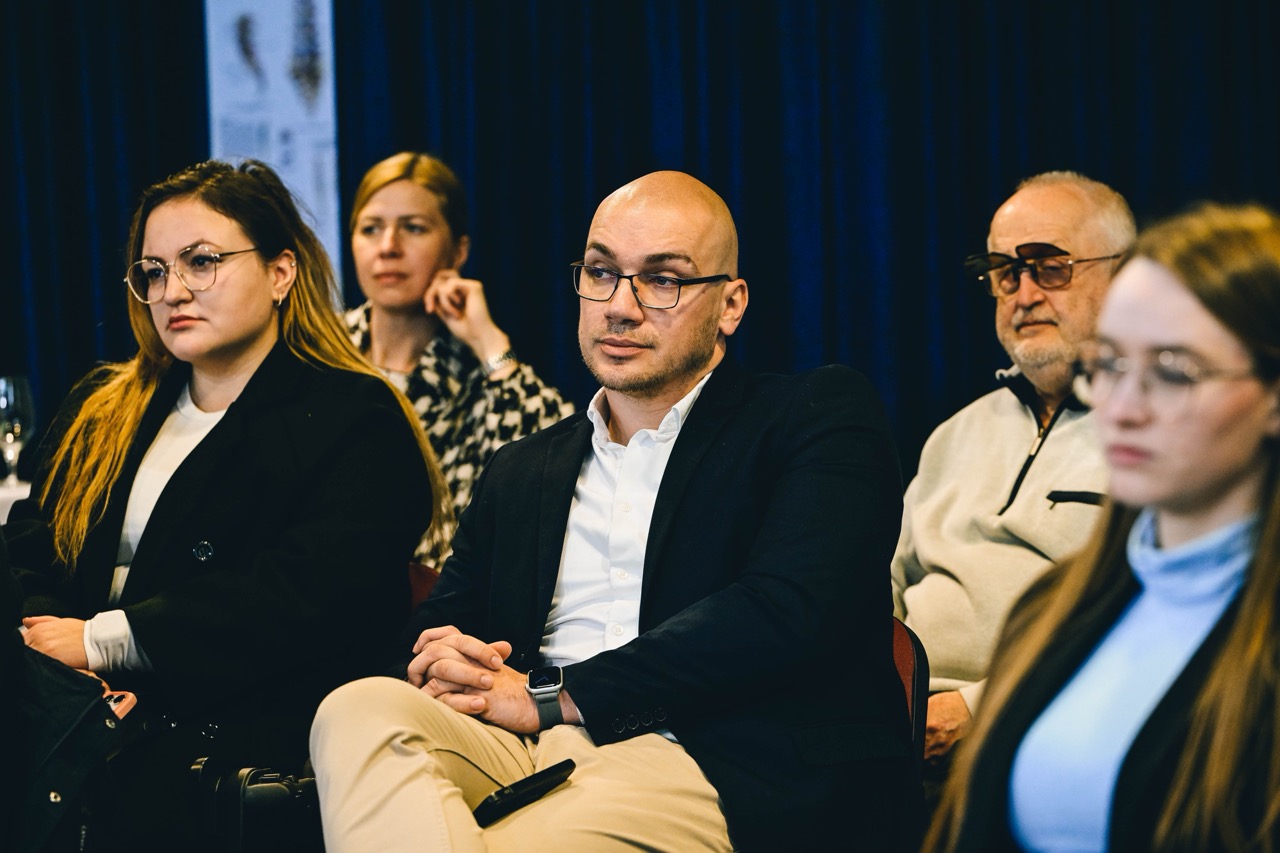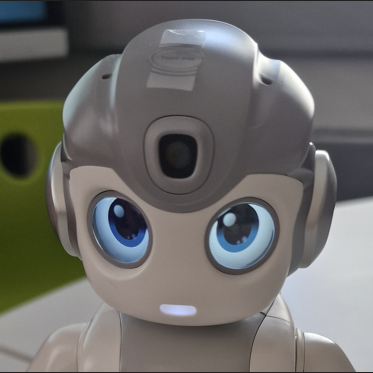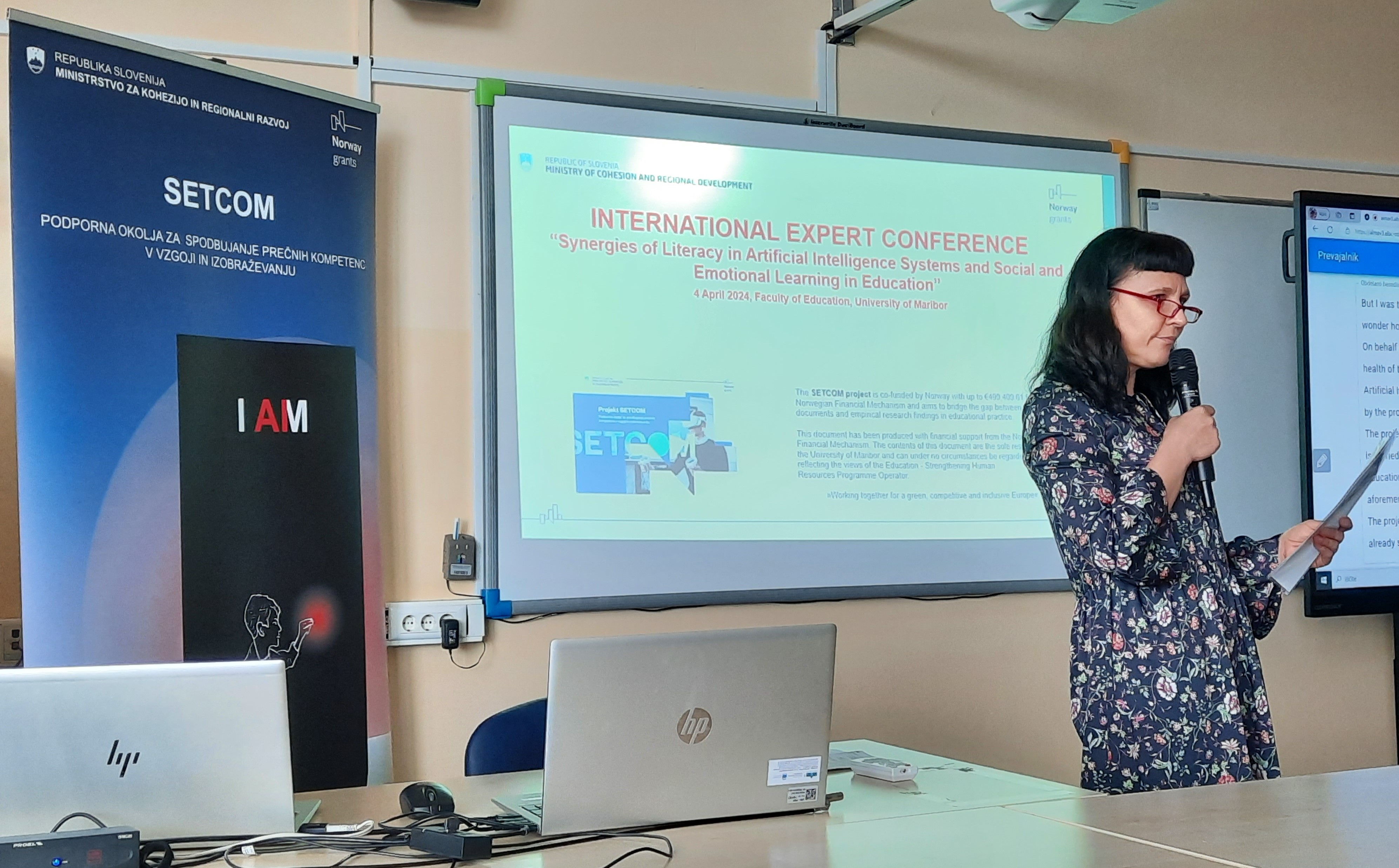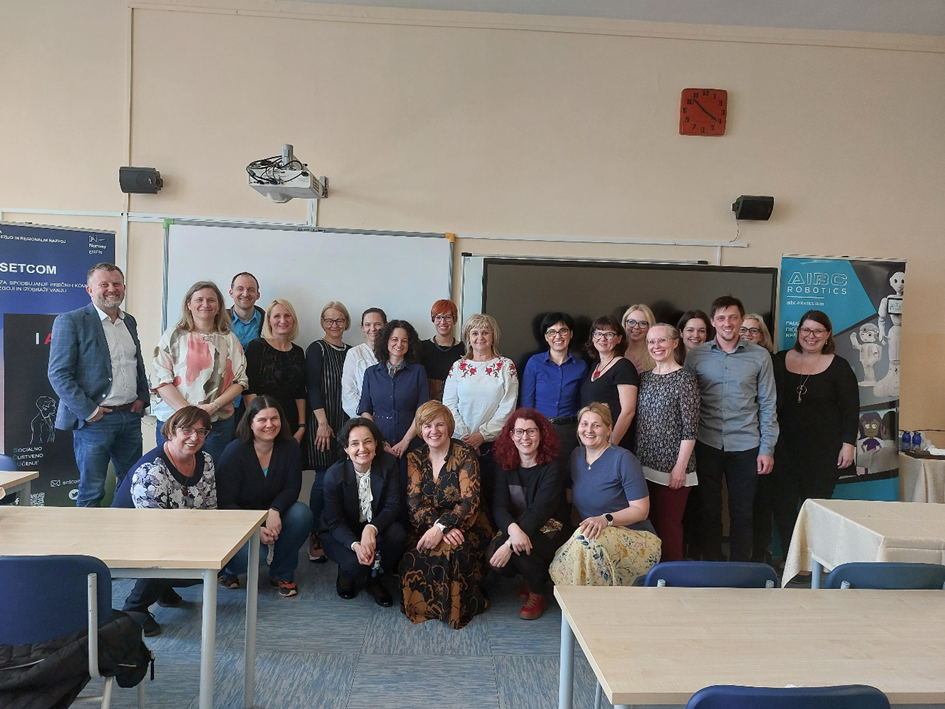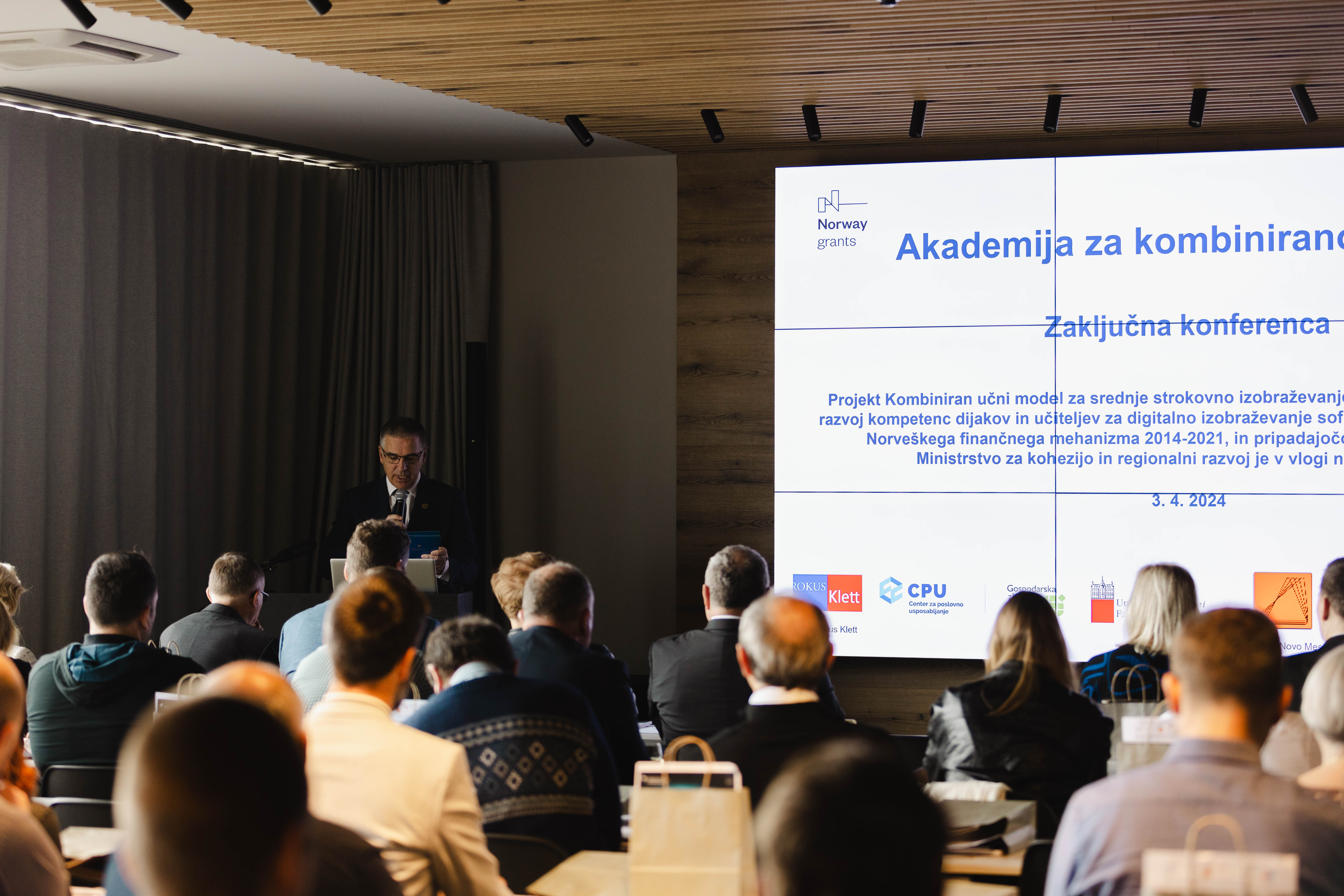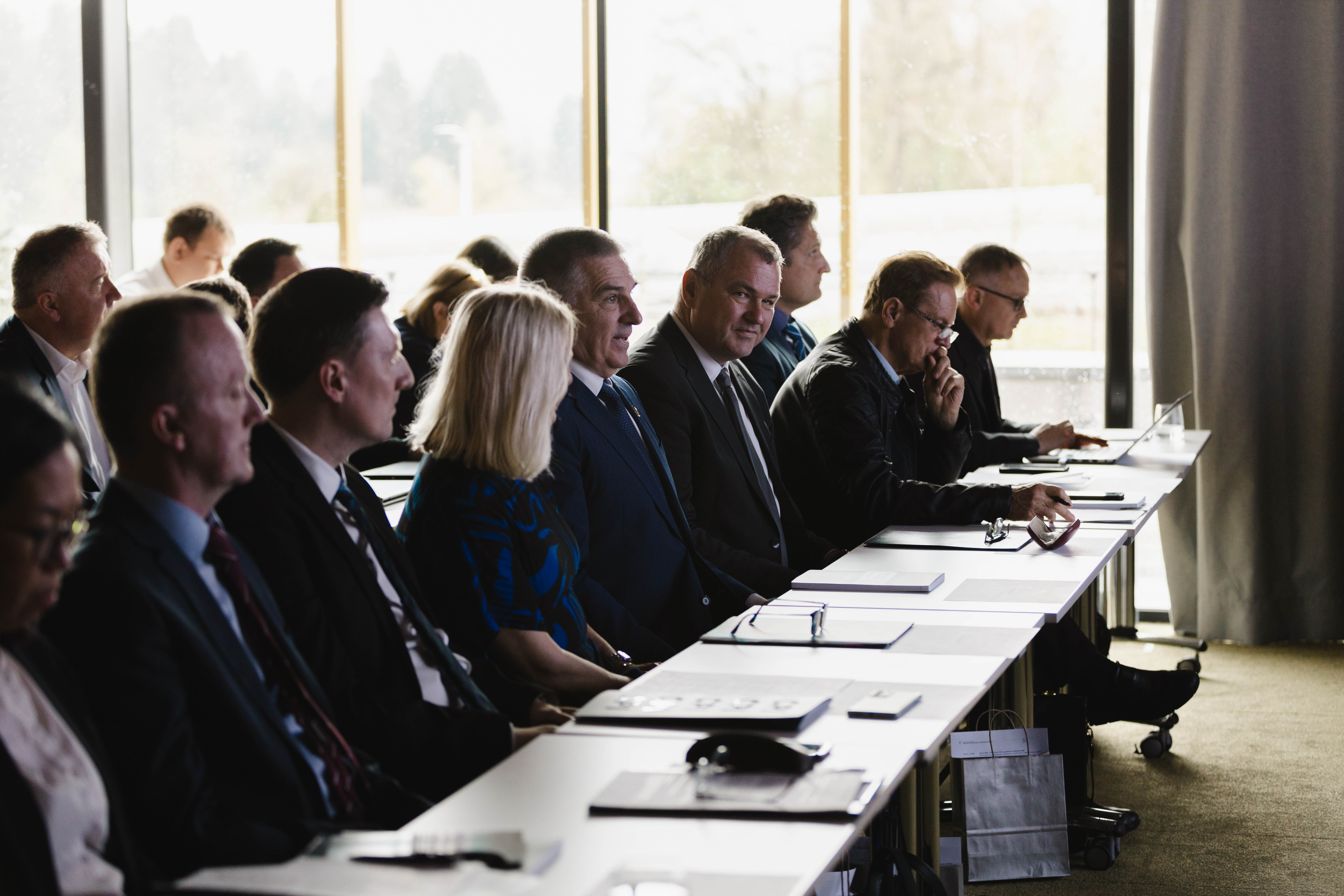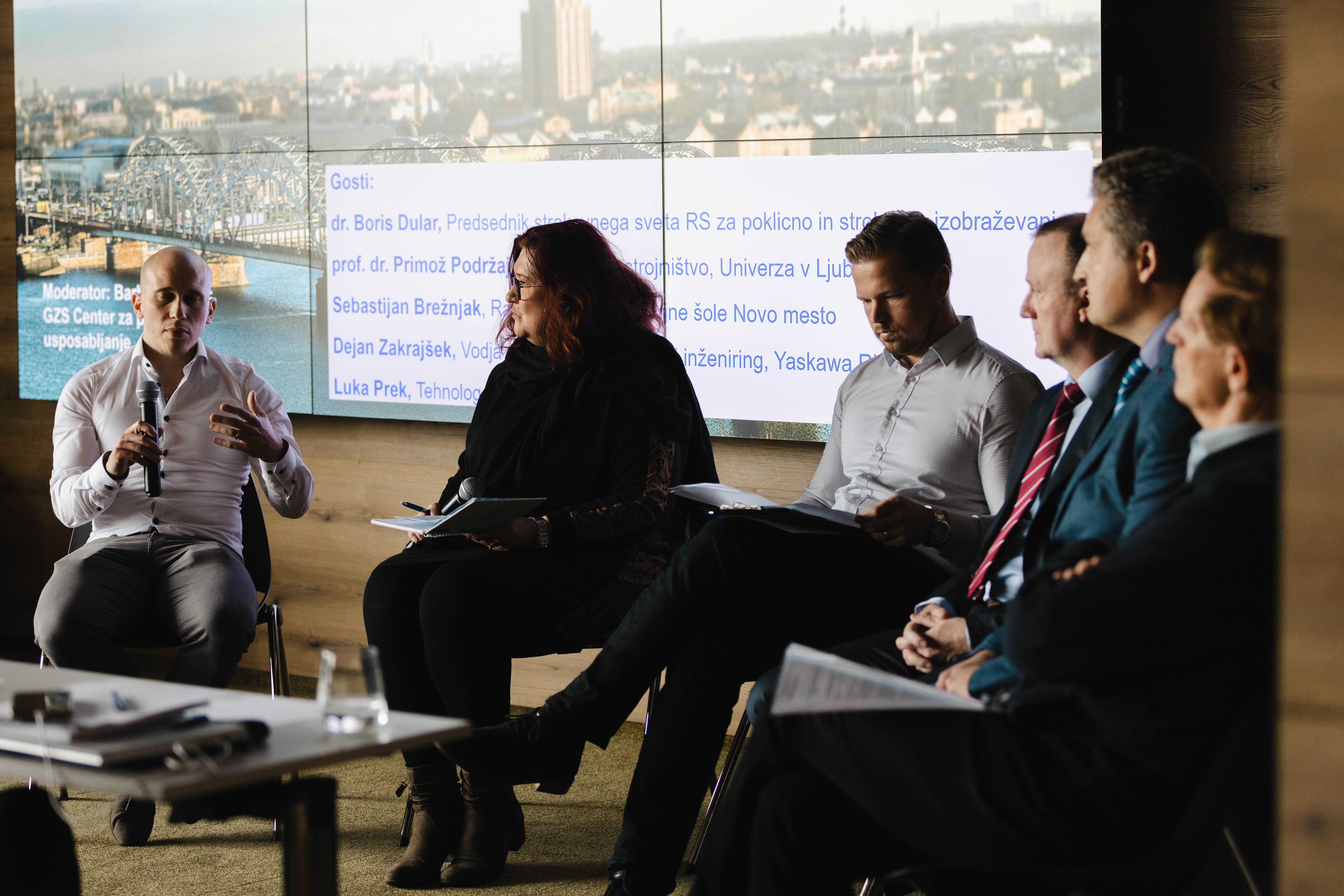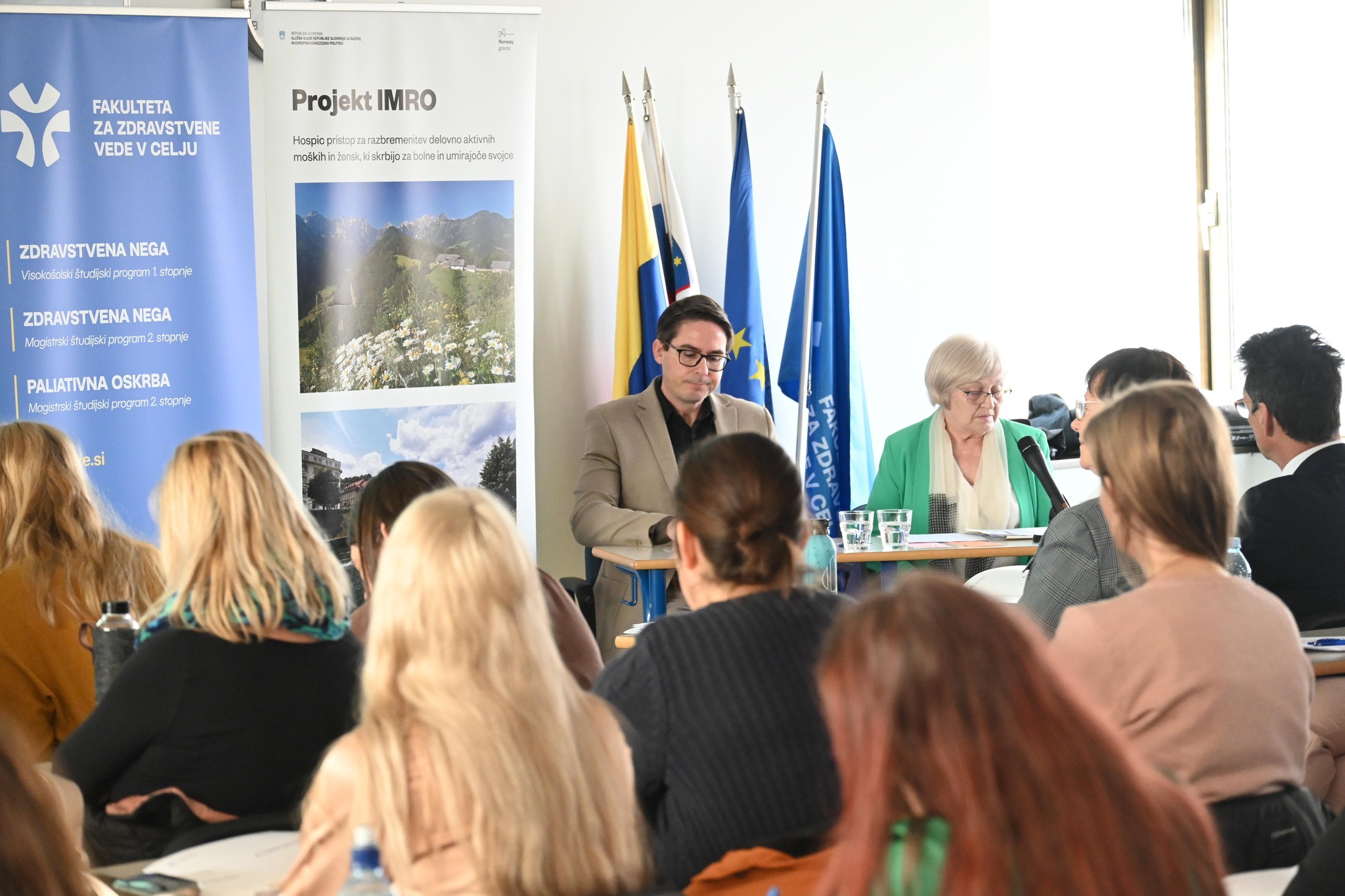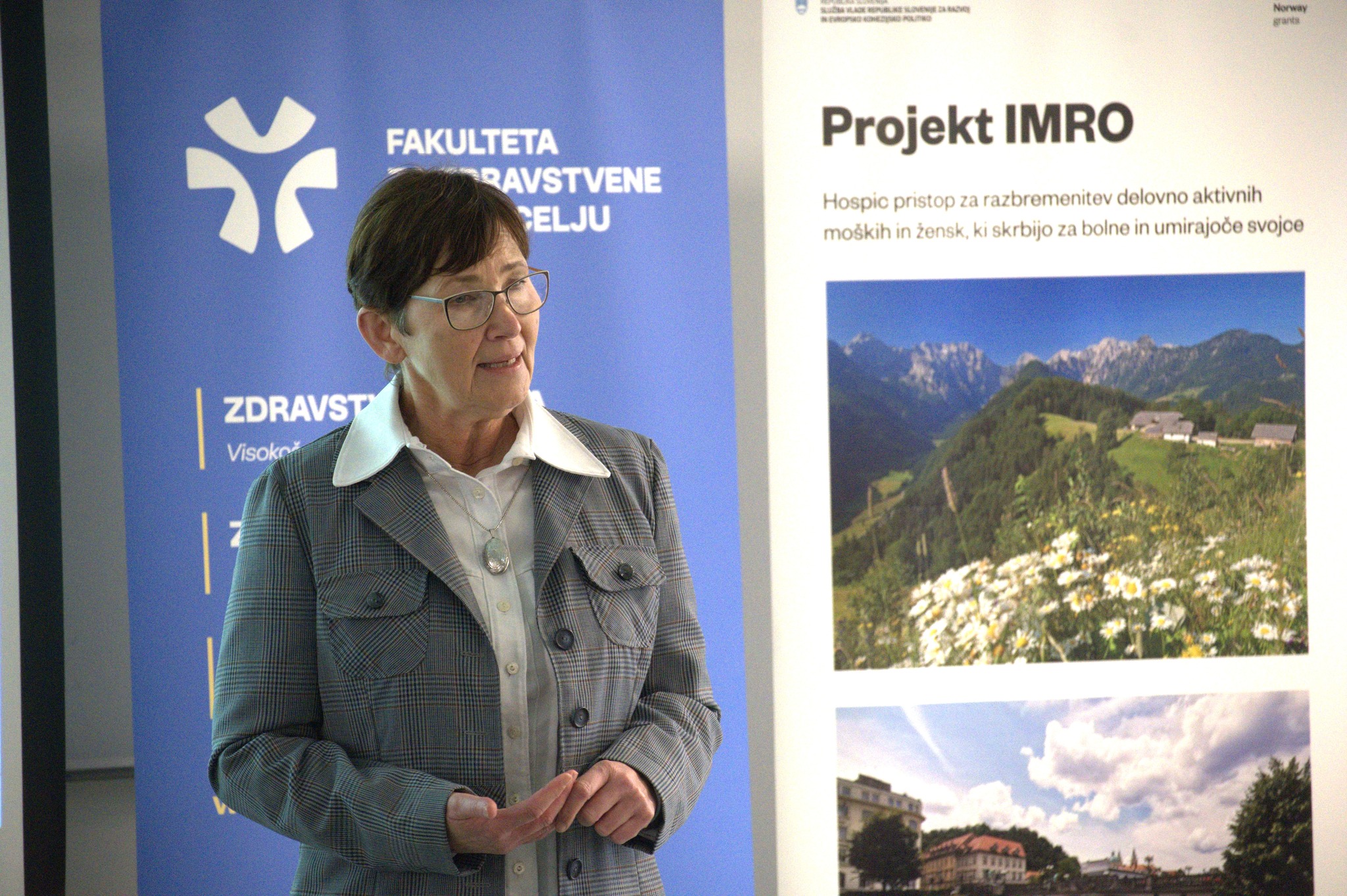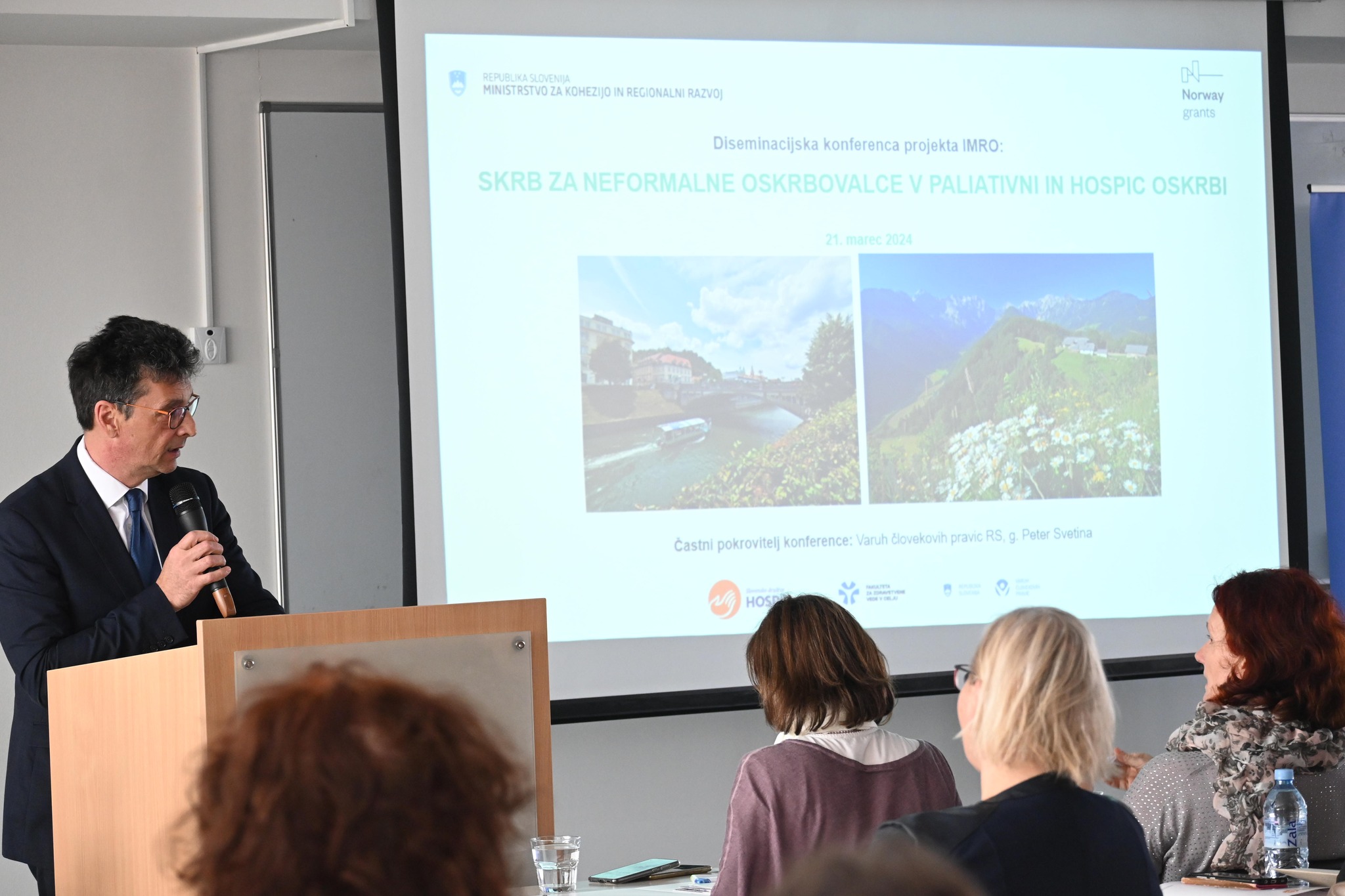15 April 2024 – The closing conference of the project Support for Professionals in Education and Employment in the Field of Autism – VIS A VIS, supported by the Norwegian Financial Mechanism, took place in Ljubljana.
The opening greeting at the conference Support for Professionals in Education and Employment in the Field of Autism was given by the project leader, Sabina Korošec Zavšek from the Association of Non-Governmental Organizations for Autism in Slovenia, who emphasised the importance of “establishing an effective model of support for all stakeholders at all levels of education and employment to improve the conditions of teaching and employability of people with autism.”
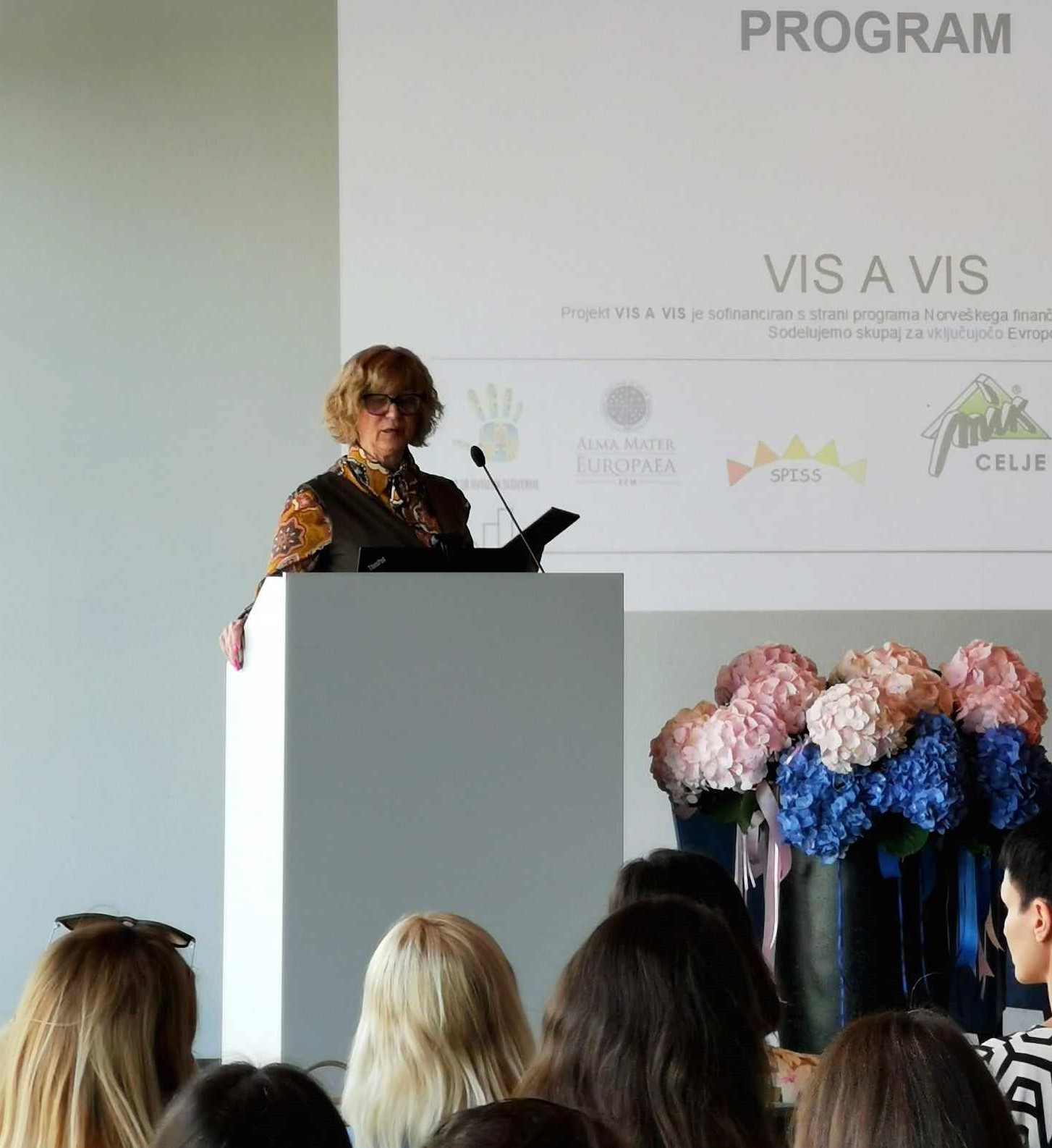
Mag. Marko Koprivc, State Secretary at the Ministry for Cohesion and Regional Development, in his opening speech stressed that “support for people with autism at the national level is sadly lacking, which is why the VIS A VIS project establishes a model for linking stakeholders at the local and national level and increases the competencies of teachers and policy makers.” He also emphasised that “in order to raise the quality of life and ensure an inclusive society, it is necessary to ensure social and economic equality for all individuals. With this kind of project, we believe that we have empowered both professionals and people with autism and opened up possibilities for integration into the community.”
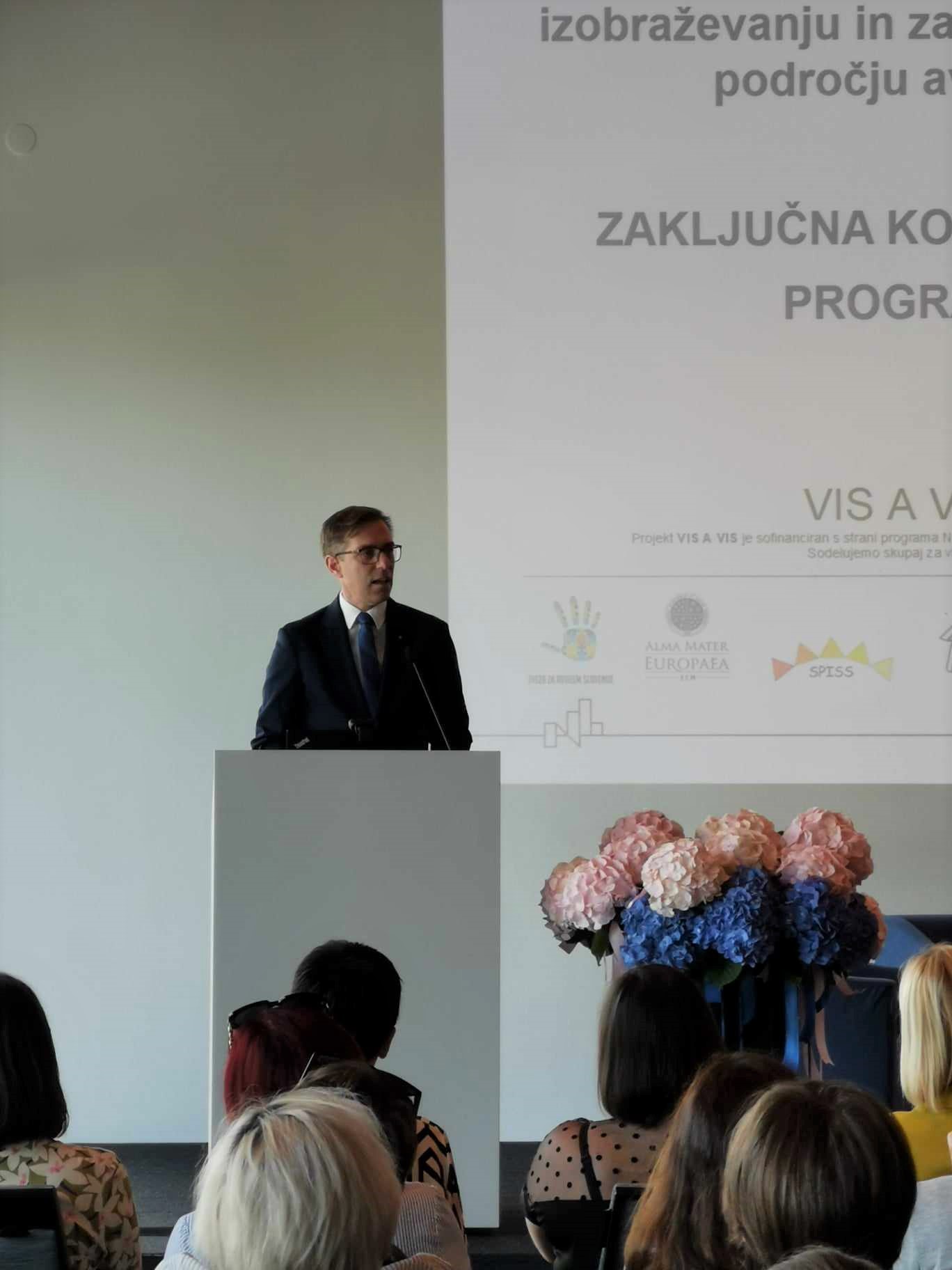
At today’s closing conference, the project partners presented their role in the project and the achievements of the project. The project carried out a survey on the prevalence of autism in Slovenia, the first of its kind in Slovenia. One of the objectives was to obtain data on the number of people with autism by age, gender, and region of residence. They also carried out a survey on the needs of professionals working in education for additional skills in the field of autism. Based on the results and with the support of a Norwegian partner, new teaching and learning practices were developed for the work and life of people with autism.
In the second part of the event, a panel discussion was held to address the employment of people with autism. Discussion shed light on experiences and examples of good practice. The panellists were Franci Pliberšek, Director of MIK, international trading and manufacturing company, Ltd who presented his experience as an employer, and Olav Helland and Luka Tešić, individuals with autism, who presented their experiences of being employed. The discussion was moderated by Ksenija Bratuš Albreht and Barbara Zupančič from the Šentprima – institute for rehabilitation and education.
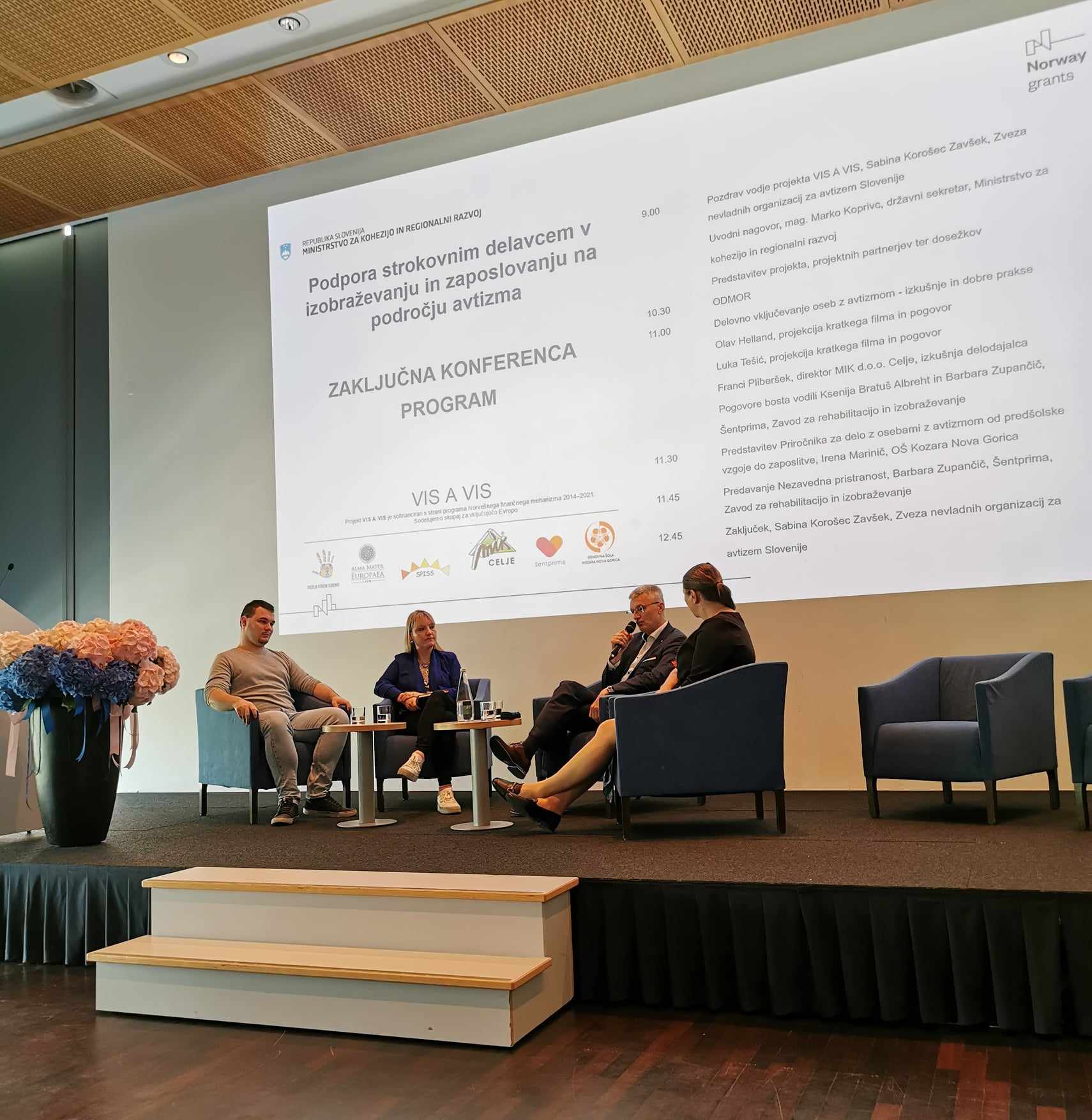
After the discussion, the Handbook for working with people with autism from pre-school education to employment was presented. Content of the handbook is intended for professionals in pre-school education, primary education, higher vocational education, and higher education. The handbook also includes a section on mental health for educators and a section on supporting employers to recruit people with autism.
Barbara Zupančič, Univ. Dipl. Psych., from the Šentprima – institute for rehabilitation and education, concluded the conference with a lecture, in which she highlighted different types of prejudice and (un)conscious discrimination.
The project involves the Association of Non-Governmental Organizations for Autism in Slovenia as the project promoter and project partners Šentprima – institute for rehabilitation and education, Alma Mater Europaea – European center, Maribor, Elementary School Kozara Nova Gorica, MIK international trading and manufacturing company, Ltd, and Norwegian Fjæran-Granum’s Top Competence Service.
SOURCE: VIS A VIS
